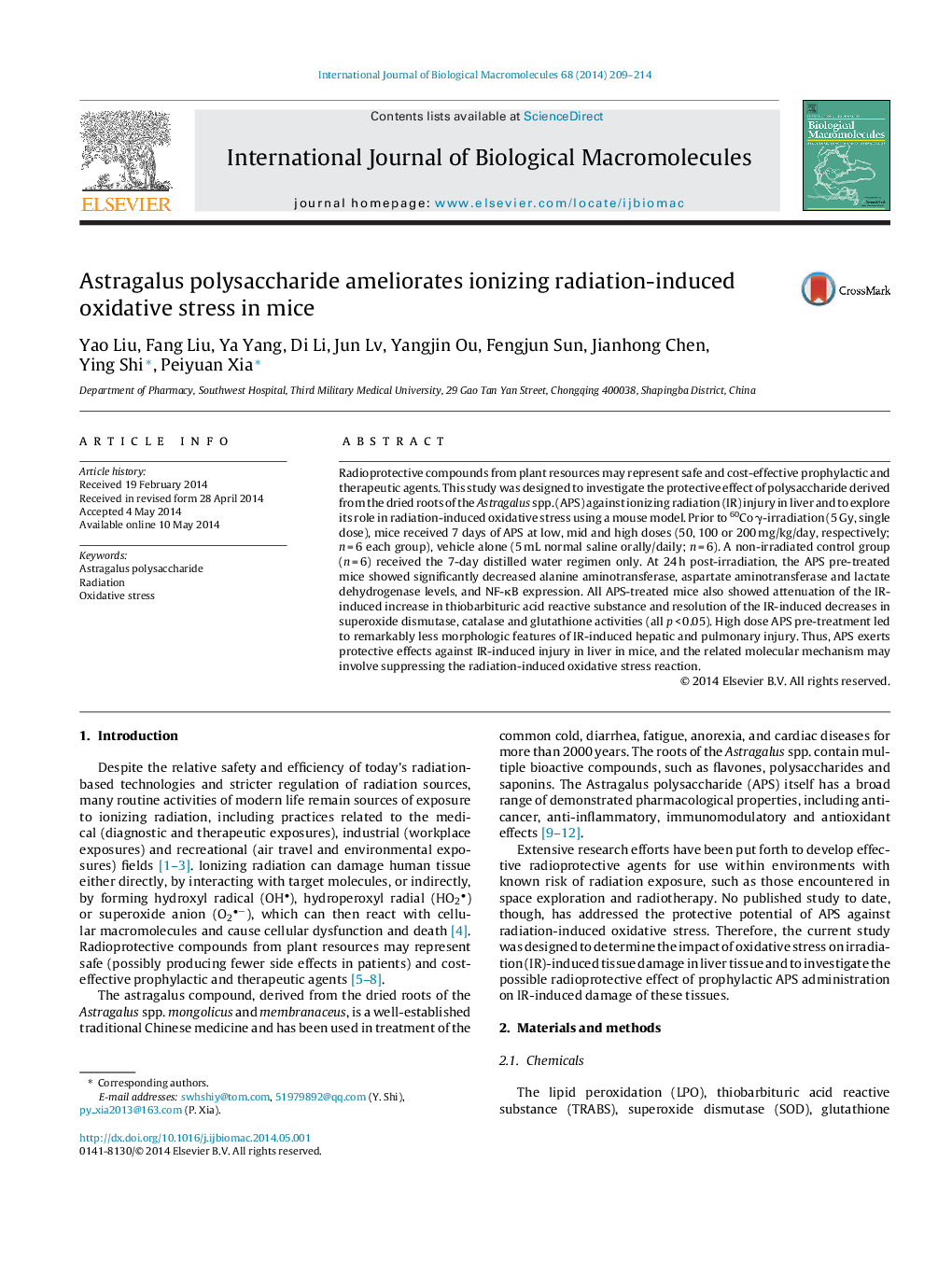| کد مقاله | کد نشریه | سال انتشار | مقاله انگلیسی | نسخه تمام متن |
|---|---|---|---|---|
| 1986497 | 1540252 | 2014 | 6 صفحه PDF | دانلود رایگان |
Radioprotective compounds from plant resources may represent safe and cost-effective prophylactic and therapeutic agents. This study was designed to investigate the protective effect of polysaccharide derived from the dried roots of the Astragalus spp. (APS) against ionizing radiation (IR) injury in liver and to explore its role in radiation-induced oxidative stress using a mouse model. Prior to 60Co γ-irradiation (5 Gy, single dose), mice received 7 days of APS at low, mid and high doses (50, 100 or 200 mg/kg/day, respectively; n = 6 each group), vehicle alone (5 mL normal saline orally/daily; n = 6). A non-irradiated control group (n = 6) received the 7-day distilled water regimen only. At 24 h post-irradiation, the APS pre-treated mice showed significantly decreased alanine aminotransferase, aspartate aminotransferase and lactate dehydrogenase levels, and NF-κB expression. All APS-treated mice also showed attenuation of the IR-induced increase in thiobarbituric acid reactive substance and resolution of the IR-induced decreases in superoxide dismutase, catalase and glutathione activities (all p < 0.05). High dose APS pre-treatment led to remarkably less morphologic features of IR-induced hepatic and pulmonary injury. Thus, APS exerts protective effects against IR-induced injury in liver in mice, and the related molecular mechanism may involve suppressing the radiation-induced oxidative stress reaction.
Journal: International Journal of Biological Macromolecules - Volume 68, July 2014, Pages 209–214
